A Twitter campaign called #Do_not_execute has spread over the past six days as critics and dissidents in the Islamic Republic have protested the Iranian government‘s record on state executions. And now Faezeh Hashemi, a reformist and public figure in Iran who also happens to be the daughter of the late former president Akbar Hashemi Rafsanjani, has added her voice to the campaign.
People have spoken of the suffering of the families whose loved ones were killed in the 1980s, in particular the killings of political dissidents in 1988, who were buried in unmarked graves in Khavaran. Family members at the time received black bags as the last relics of their relatives. Students were also killed in the 1990s during raids by security forces on university dormitories. Others were killed during the 2009 protest such as Neda Agha-Soltan and Sohrab Arabi. And most recently hundreds of Iranians were killed during protests in January 2017 and November 2019.
The #Do_not_execute campaign was launched to protest the death sentences of Amir Hossein Moradi, Saeed Tamjidi, and Mohammad Rajabi, three Iranians arrested during the November 2019 protests.
But the protests soon expanded beyond to take in the full 41-year record of the Islamic Republic; a record full of gallows and nooses, unmarked graves, pouches of memento mori, torture and confessions and heavy prison sentences. The #Do_not_execute hashtag has been used more than ten million times and has captured a litany of stories over executions carried out by the regime – painful and shocking stories.
Faezeh Hashemi, a political activist and former member of parliament, spoke this weekend about the #Do_not_execute campaign and answered questions in an audio file received by IranWire. And though she does not use social media directly she does follow topics of interest and trends through others.
Hashemi described the campaign as huge and remarkable: "What happened was unprecedented and strange. The miracle is cyberspace, and it shows how cyberspace can be used; it was beautiful."
Hashemi attributes the scale of the campaign to widespread public dissatisfaction.
”In the past we have seen protests for years, in the streets, demonstrations, and online, but the repression was so severe that these criticisms were less widespread,” Hashemi said. “They were soon extinguished, but now the coronavirus issue and severe economic problems have been added; that is, everything has gone hand-in-hand, and the situation has gotten worse and worse. Some of the people who took part in this campaign are not necessarily political; they are tired of the economic situation and other problems."
Hashemi also noted that, as a political activist and former parliamentarian, regarding peoples’ stories about the executions of dissidents in the 1980s, she was aware of some of the stories but not others.
"If I want to analyze this issue,” Hashemi said, “I must say that in the first ten years of the Revolution, the government behaved badly in many ways because of the Revolution and the [Iran-Iraq] war and because of revolutionary events. And from 1989, when the war ended, up to the period of [the reformist] Mohammad Khatami's presidency, it is true that there were lots of protests, but they went well. For example, when you talk to various groups, there was less harassment and abuse in that period; there were fewer thefts and embezzlements. But unfortunately, with the arrival of Mahmoud Ahmadinejad, the progress of past achievements changed and we fell into a strange deviation that I think continues now as well. Hassan Rouhani [the current president] not only failed to make any reforms but continued many of Mr. Ahmadinejad's policies."
Hashemi emphasized that what is being said by online is true and did happen.
”What they are saying are the facts that have existed,” Hashemi said. “I knew some of them and I did not know others. Because before I became a member of parliament, I was not a politician and most of my activity was in women's sports, and after that I got involved in issues according to what was asked of me. So I was not aware of many things or maybe I did not have the same views as today. However, the accumulation of protests, grievances, and harmful state actions has brought us to this point. All of them are remarkable in their own right."
Faezeh Hashemi is the wife of Hamid Lahouti, and her sister, Fatemeh Hashemi, is the wife of Saeed Lahouti, the two sons of Ayatollah Hassan Lahouti. In November 1981, a few days after Ayatollah Lahouti's eldest son, Vahid Lahouti, was arrested on charges of collaborating with the Mojahedin-e Khalq (MKO), Hassan Lahouti was arrested by the then Tehran prosecutor, Assadollah Lajevardi; an hour after his arrest, his family was told that he had died, because of a stroke. Vahid Lahouti was meanwhile said to have committed suicide.
In 1999, the Shahrvand-e Emrooz magazine, in a special issue published on the anniversary of Hassan Lahouti's death, interviewed Faezeh and Fatemeh about their Lahouti family. The family questioned the narratives given for the deaths of Hassan and Vahid Lahouti and they implied the Lahoutis had been killed. Regarding Hassan Lahouti's death, they stated that according to forensic medicine, he had signs of strychnine toxin in his stomach and that he did not die of natural causes. In the same interview, Faezeh Hashemi also said that Vahid Lahouti died in Evin Prison as a result of a blow to the head.
All of this suggests that Faezeh Hashemi can be expected to have had a better understanding of the way the Islamic Republic treated and killed detainees in the 1980s and even later.
"As I said, I knew some [of these incidents] and I did not know others,” Hashemi reiterated in her audio messages to IranWire. “We were naturally aware of what happened to Mr. Lahouti and Vahid, but at that time, no one from Mr. Lahouti's family, who now became my husband and my sister Fati's husband, followed up on the matter. I was 19 years old at the time, and we were upset, and it had its [negative] effects. But we did not pursue why this happened, or whether people involved should be punished and so on. We did not follow up, and I do not know why we did not follow up, perhaps because our husbands were very calm.”
But Hashemi added: “Why do we have to go back in time? ... Talking about the past does not change anything. I do not deny the problems of the past; it was and still is [problematic] but the situation is much worse now than it was in those days."
Many say that little or nothing has changed in Iran – only social media has made people more aware of these problems.
"We are now seeing what is going on,” Hashemi agrees. "If we do not go too far back, we have the 2009 protests, the 2017 protests, and then the 2019 protests. There have been many unfortunate incidents during this time, but these have been the most significant ones. These protests do not come from nowhere; there is a wrong action by the government, which creates popular protests. Social networks also have their role. However, I myself, as a reformist, say that at that time reformists accepted the system and were trying to work through the system. But gradually, since 2009, even the fundamentalists changed their line, let alone the reformists. ... A larger group joined the dissidents. The older ones, that is, those from the first ten years of the Revolution or the following years, had fewer grievances because they did not believe much in what had happened and how parts of the system had functioned. Some even, when they heard about harmful or repressive actions by the state, would say that [the victims] must have had a problem or something similar. But when the clashes spread and reached the supporters of the regime, everyone understood what was going on."
Hashemi said that she still considers herself both a reformist and “somewhat revolutionary.”
But she added that “the majority of reformists have deviated from the path of reformism and have distanced themselves from the features of reformism. They have become indifferent and careless and have lost their beliefs. We have had three elections since 2013, and the reformists had won, but they missed opportunities ... We know that there are many obstacles which was created by [hardliners]. But those parts of government that reformists did control, they did not reform, but instead continued the same path that the fundamentalists had taken. I consider myself a reformist, because I believe that there is no other way but reformism. Reformism is not gone, but the reformists do not have a good track record for reforming the Islamic Republic."
Ebrahim Raisi, the head of Iran's judiciary, was the conservative candidate in the 2017 presidential elections. Prior to the election, Ahmad Montazeri, the son of the ousted deputy leader of the Islamic Republic, Hossein Ali Montazeri, released an audio recording of Ayatollah Montazeri's meeting with the death squad that decided on executions in the summer of 1988.
Raisi was one of those at the meeting who defended the executions. This issue came to the attention of supporters of the rival candidate, Hassan Rouhani, during the 2017 election. But when Raisi was elected as head of the judiciary by Iran’s Supreme Leader Ayatollah Ali Khamenei, and was responsible for dealing with several economic corruption cases, he promised justice and a fight against corruption during his tenure in the judiciary.
Faezeh Hashemi, however, believes that Ebrahim Raisi's judiciary is little different from his hardline predecessor Sadegh Larijani.
”Mr. Raeisi speaks very well,” Hashemi said. “We are still waiting to see actions that will convince us of his professionalism. In my opinion, Mr. Raeisi is also wasting the opportunities. Since Mr. Raeisi took office, many tragedies have befallen politicians, critics, social activists, women's rights activists, environmentalists, teachers and workers, and all those who have protested and spoken out. So not only has justice not been done, but on the contrary, the situation of justice has worsened day by day. Clashes [during protests] are severe and the sentences [against protesters] are much heavier. Even in these days when the coronavirus breakout has forced everyone to stay at home and to not go out, people are regularly summoned and imprisoned ... The independence of the judiciary remains under question; the Revolutionary Guards, the Ministry of Intelligence, and other institutions make the decisions, and the judiciary is in their hands.”
Hashemi then became more specific and referring to the death sentences passed against the three young men arrested during the November 2019 protests.
“Despite what their lawyers said,” Hashemi said, “that the cases against them were baseless, they were all charged and the death sentence was unfortunate. In another case, a person was executed for drinking alcohol and this act was defended by the judiciary. Even if we look at our law, which is not a good law, one of the lawyers said that although he was arrested several times for drinking alcohol, he was never punished for this charge. The same law says that a person is sentenced to death only if he has been sentenced and punished three times before, but this had not happened in this case. As I said, this law is not a good law, because in the Quran, drinking alcohol is not punishable at all; they use the hadith to prove this."
"Mr. Raisi spoke about reviving the political crime law,” Hashemi added. “But since the law on political crime was written in 2015, no political crime trial has yet been held. Politicians are tried behind closed doors in revolutionary courts. Mr. Raesi! You will not be proud of your performance if you do not take these three young November protesters to a political crime court and try them in the presence of a real jury, not a jury appointed by the ruling power. Compulsory lawyers are now obsolete; that did not happen even in Shah's period. ... Why the lawyers were unable to access the case file of these three young men?"
Hashemi also protested against forced confessions that are regularly broadcast on television – a practice the Iranian government uses to try to break its detainees.
"These confessions are often made in the very early stages of the interrogation, when the defendants do not have access to a lawyer,” Hashemi said. "rThe most catastrophic of all was the confession of Ruhollah Zam,” she added, referring to a journalist recently sentenced to death. “Where in the world does a person sentenced to death appear in front of the camera and give a show?"
Hashemi also objected to the fact that political prisoners and detained civil rights activists have not been granted prison leave during the coronavirus pandemic.
"It is a crime to keep political prisoners and civil activists in prison during this outbreak,” Hashemi said. "We all know the consequences of the coronavirus disease; so if a person dies or is injured in prison with coronavirus, a great crime has taken place."
Hashemi noted that despite not having social media accounts she has asked a friend to share her remarks online for the #Do_not_execute campaign: ”Dealing with critics and executing them is immoral and inhumane, against human rights, and against our Constitution."
"We have freedom of expression in the Constitution,” Hashemi told IranWire in her auto message. “Demonstrations do not require permission. Everyone can come to the street and chant slogans as long as they do not have weapons, and this is not a crime."
Many people have tweeted and written about dissidents and critics of the regime who have been killed by the government or are in prison. But if they were alive, they would write “DO not execute” and we would repeat “Do not execute.”
“I think of Mr. Lahouti," Faezeh Hashemi said. "If he were here, he would say ‘Do not execute’ and now I will say ‘Do not execute,’ instead of Mr. Lahouti. He was also critical of the situation and was arrested for the same reasons."
visit the accountability section
In this section of Iran Wire, you can contact the officials and launch your campaign for various problems




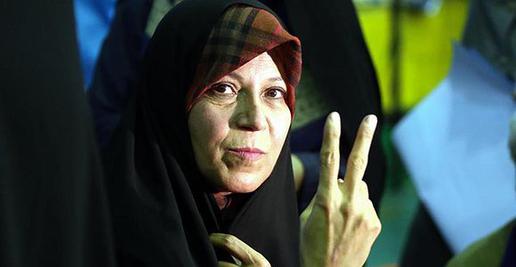
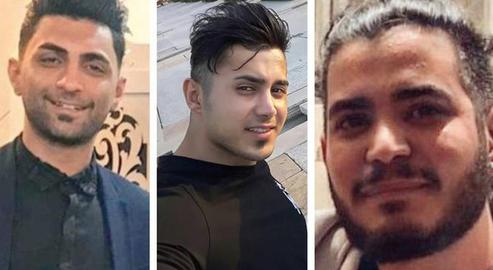
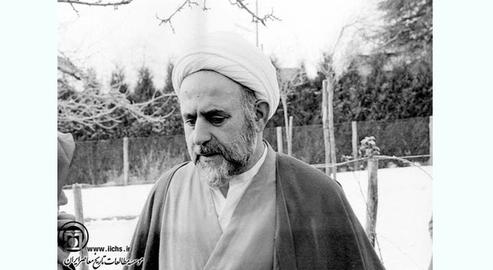
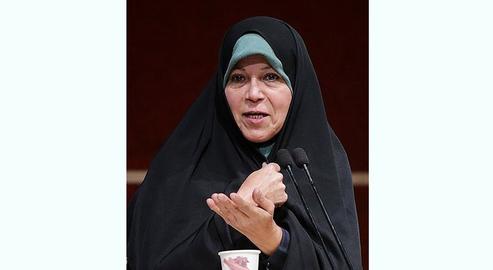



















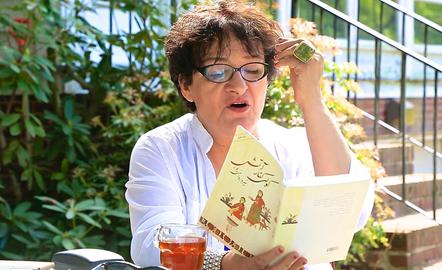
comments